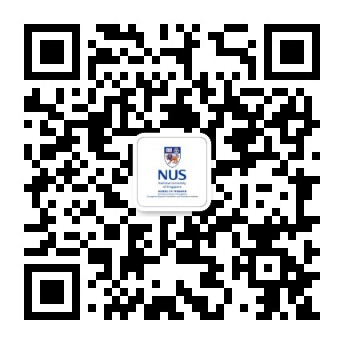Interviewee Profile:
Mr. Zeng is a master's student in Master of Science (Materials Science and Engineering) at the National University of Singapore (NUS) for AY2024/2025. He is also one of the first cohort of the NUS Guangzhou Research Translation and Innovation Institute (NUS GRTII) Masters’ Scholarship recipients. He will join a high-performance materials company in Huangpu District with total assets exceeding 60 billion RMB in July 2025 upon graduation from NUS.
Part 1: NUS GRTII Masters’ Scholarship Programme and Personal Planning
Q1: How did you learn about the NUS GRTII Masters’ Scholarship Programme? What was the biggest appeal of this scholarship for you?
A1: I found out through an email sent by NUS GRTII. The scholarship significantly eased my family’s financial burden, which was a major draw for me.
Additionally, Huangpu’s industrial development aligns well with my academic focus. Working in Huangpu fits perfectly into my career plan.
Q2: What are your thoughts on the scholarship’s service bond? Do you see it more as an opportunity or a constraint?
A2: For me, the service bond isn’t a restriction—it’s actually an unexpected opportunity.
First, early-career choices don’t dictate our entire professional journey. Taking a job doesn’t mean staying in one industry forever. In fact, the early stages are ideal for experimentation, helping us explore different career paths.
Second, I believe it is more efficient to dive into one area than to spray and pray when casting about career opportunities. The industry, high-performance plastics, I’ve chosen has over 30 years of history in China, and its complexity exceeds my expectations. In comparison, a two-year service bond is quite short—it might only be enough to scratch the surface of the industry.
So, the service bond isn’t about “limiting choices” but “creating choices.” It directs my career focus to Huangpu’s high-tech enterprises, allowing me to concentrate my efforts, conduct in-depth research, and identify the best employers. Rather than restricting options, it helps us unlock them in advance.
Some worry that signing the service bond agreement “locks them in,” forcing them into employment and cutting off academic paths. But as my mentor said: “In the new materials industry, the line between academia and industry has long blurred.” Even if I return to academia after two years, hands-on industry experience could give me an edge over purely academic candidates when applying to top research teams. Work experience can actually expand our options.
Part 2: Experience of Exploring Career Opportunities in Huangpu District
Q1: How did you access internship/job opportunities and career guidance companies in Huangpu District?
A1: I first discovered job postings through the official WeChat accounts of NUS GRTII and NUS GRTII Education Office, then supplemented with my own online research. The Talent Work Group and NUS GRTII teams also regularly compile job listings based on Huangpu employers’ needs, making it much easier for scholarship recipients to find suitable roles.
Additionally, the Institute organized a Spring Festival reception, bringing together all scholarship recipients to share insights. The networking there helped me uncover many job leads, and I continue to exchange information with fellow scholars.
This scholarship has boosted my confidence—it’s both motivation and validation. As part of the inaugural cohort, this distinction became a resume highlight. Many employers praised my scholarship achievement, recognizing it as proof of strong capability.
Q2: How did you plan for your service period?
A2: My strategy is to set clear short- and long-term goals upfront—like mapping out 3–5-year career objectives (e.g., specializing in R&D or exploring cross-industry roles)—and ensuring the scholarship supports those plans. If your target role has high entry barriers, careful time management is crucial.
Research Huangpu job requirements and hiring ratios before applying for the scholarship. This “goal-oriented” strategy helps avoid pitfalls, like obtaining the scholarship opportunity but failing to secure a job offer. It ensures you pursue opportunities that align with your career vision.
Many students fear the service bond will limit their growth, but I see it as a golden window for professional exploration. Hands-on industry experience becomes resume-worthy “hard currency,” valuable even if you later pivot to further studies or new fields.


